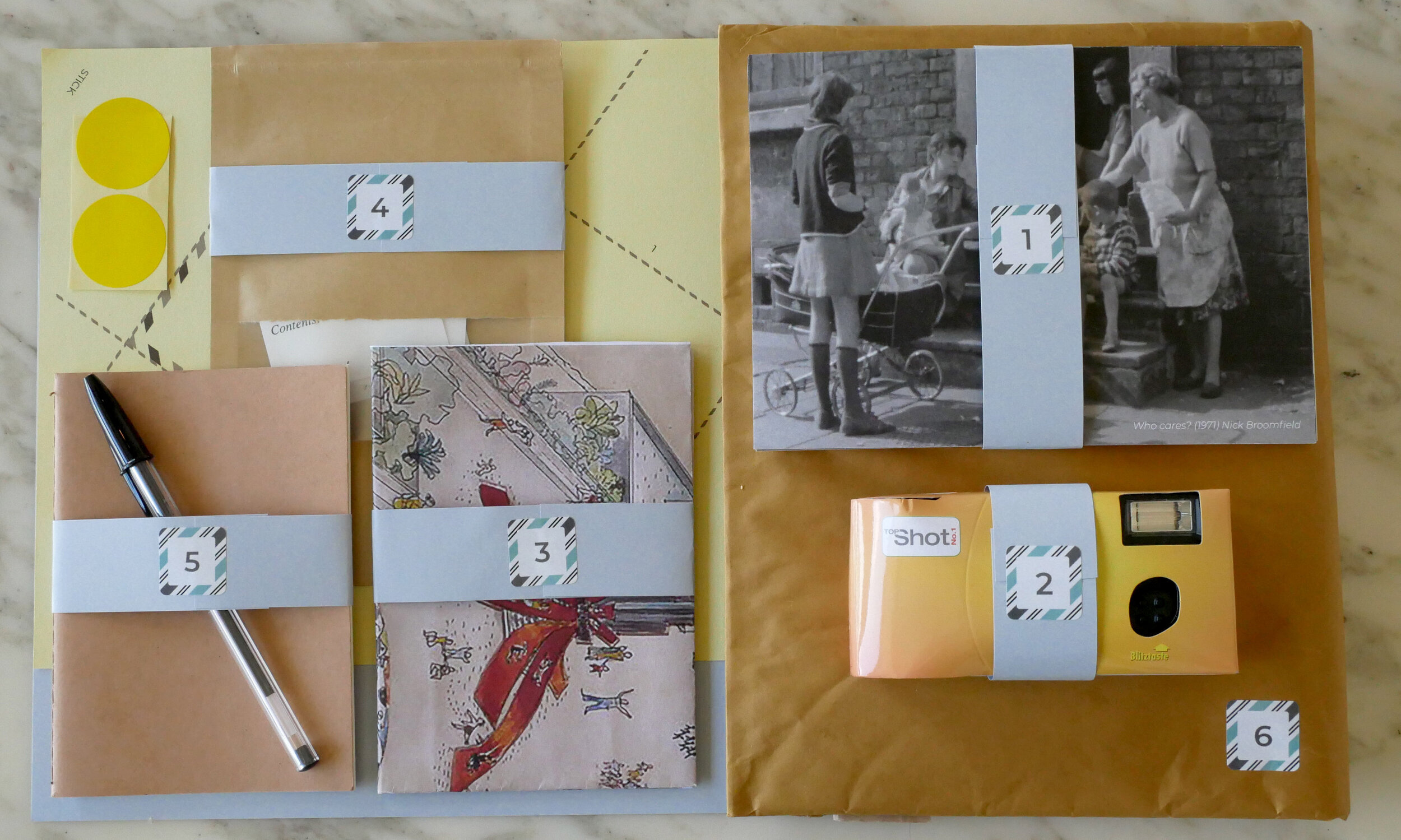Concept
Because of the current restrictions on movement and social distancing, we have designed research packs that will allow participants to study their own homes. The packs consist of familiar, paper-based devices such as postcards, maps, and notebooks as well as low-tech technologies such as disposable cameras and sound recorders, that we have creatively adapted to motivate participants to respond to a series of open-ended questions and playful tasks. The tools are exploratory in nature and, similar to classic anthropological research, they build on the spirit of participation and care to invite research participants to share experiences of what it means to feel safe at home today. As a result, the project’s findings may be unexpected and provocative, and innovative ways of thinking about housing issues as well as responding to the current crisis can emerge.
The low-tech nature of the packs is particularly suited for use in the COVID-19 research context, because unlike digital methods, it will allow people of all ages and backgrounds to participate at their own pace and in their own time. The tactility of the tools is also in tune with the current appetite for slower activities and the pursuit of home-based crafts. Moreover, through repeated exchanges of physical packs it will be possible to develop a relationship of trust with participants, much like the reciprocal bonds that develops between researcher and those studied during long term fieldwork. This is especially important when studying safety inside the home which impacts on intimate aspects of people’s lives, especially core relationships and feelings such as anxiety, care, and love. We also envision the packs to act as enchanting gifts that can empower and inspire recipients, many of whom might feel disconnected or disengaged, by engaging them in creative ways with their domestic environment, and, by extension, with the current unusual situation.

